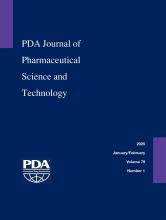Abstract
Purpose: This FDA laboratory study examines the impact of tablet splitting, the effect of tablet splitters, and the presence of a tablet score on the dose uniformity of two model drugs. Methods: Whole tablets were purchased from five manufacturers for amlodipine and six for gabapentin. Two splitters were used for each drug product and the gabapentin tablets were also split by hand. Whole and split amlodipine tablets were tested for content uniformity following the general chapter of the United States Pharmacopeia (USP) Uniformity of Dosage Units <905>, which is a requirement of the new FDA Guidance for Industry on tablet scoring. The USP weight variation method was used for gabapentin split tablets based on the recommendation of the guidance. Results: All whole tablets met the USP acceptance criteria for the Uniformity of Dosage Units. Variation in whole tablet content ranged from 0.5-2.1 standard deviation (SD) of the % label claim. Splitting the unscored amlodipine tablets resulted in a significant increase in dose variability of 6.5-25.4 SD when compared to whole tablets. Split tablets from all amlodipine drug products did not meet the USP acceptance criteria for content uniformity. Variation in the weight for gabapentin split tablets was greater than the whole tablets, ranging from 1.3-9.3 SD. All fully scored gabapentin products met the USP acceptance criteria for weight variation. Conclusion: Size, shape, and the presence or absence of a tablet score can affect the content uniformity and weight variation of amlodipine and gabapentin tablets. Tablet splitting produced higher variability. Differences in dose variability and fragmentation were observed between tablet splitters and hand splitting. These results are consistent with the FDA's concerns that tablet splitting "can affect how much drug is present in the split tablet and available for absorption" as stated in the guidance (1).
- Received December 31, 2015.
- Accepted May 3, 2016.
- Copyright © 2016, Parenteral Drug Association
PDA members receive access to all articles published in the current year and previous volume year. Institutional subscribers received access to all content. Log in below to receive access to this article if you are either of these.
If you are neither or you are a PDA member trying to access an article outside of your membership license, then you must purchase access to this article (below). If you do not have a username or password for JPST, you will be required to create an account prior to purchasing.
Full issue PDFs are for PDA members only.
Note to pda.org users
The PDA and PDA bookstore websites (www.pda.org and www.pda.org/bookstore) are separate websites from the PDA JPST website. When you first join PDA, your initial UserID and Password are sent to HighWirePress to create your PDA JPST account. Subsequent UserrID and Password changes required at the PDA websites will not pass on to PDA JPST and vice versa. If you forget your PDA JPST UserID and/or Password, you can request help to retrieve UserID and reset Password below.






